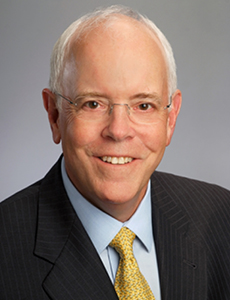Message from the CEO
By Wright Caughman

Health services research (HSR) is one of the fastest growing research areas here at Emory and across the country. Its goal is to mine through the mountains of available data to get better health outcomes at a lower price. To do so, it cuts across disciplines ranging from economics and health policy to health delivery and education to consider a broad range of health issues, including chronic problems such as obesity and diabetes, as well as life-threatening cancers.
HSR studies at Emory number in the hundreds. To name just three, our researchers are analyzing Medicaid costs attributable to smoking during pregnancy and the cost-effectiveness of increased prenatal care. They are working to improve how biomedical research is conducted not only at Emory but also across the country. They also are developing and testing health biomarkers to predict disease and intervene early, using findings to develop personalized plans for optimal health.A comprehensive listing of HSR studies at Emory and our partners in the Southeast is available at hip.emory.edu.
In his editorial in this issue of Emory Health, Bill Bornstein makes an argument for more funding for and emphasis on HSR. Despite its focus on ensuring that patients receive evidence-based care reliably and safely, this area is dramatically underfunded nationally. As Dr. Bornstein points out, the White House FY2011 budget requested only $611 million for health care delivery compared with $32.2 billion for basic biomedical discoveries. Going forward, we will need both brilliant scientific discoveries and a better understanding of how to deliver those discoveries to patients in a cost-effective way. It will take both to reform our health system.
This idea of cross-pollination threads throughout all that we do in the Woodruff Health Sciences Center. In fact, it starts with our educational programs, where we are nurturing doctors, nurses, and other health care providers who not only are technically knowledgeable but also understand compassionate care. We want students to see that compassion goes well beyond simply sympathizing with a patient to using in-depth communication and active listening skills to understand what is really going on with that patient. And this compassionate care ultimately will lead to better patient outcomes and adherence to treatment regimens.
In closing, I’d like to take this opportunity to thank Thomas Lawley for his long service as dean of Emory’s medical school. As one of the longest-serving medical deans in the country, Dr. Lawley will be leaving the deanship in August 2012, but fortunately for Emory, he will remain on our faculty. His leadership has helped make this academic medical center strong and positioned it as a place where compassion and science can come together for the greater good of our patients and our society.





